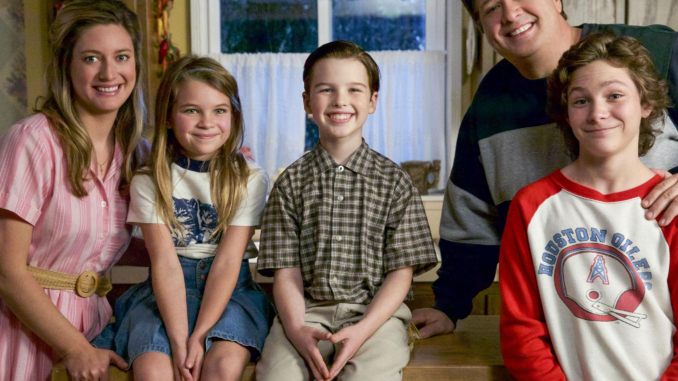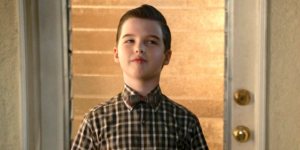
Introduction: Learning Parenting Lessons from Young Sheldon… and Choosing a Different Path
Parenting is a deeply personal experience. Every family dynamic is unique, and every parent approaches their role differently. One popular source of parenting inspiration comes from TV shows, where fictional families often serve as a mirror (or a warning) for how we handle child-rearing. One show that offers a fascinating look at family life is Young Sheldon, which chronicles the childhood of Sheldon Cooper, the brilliant and eccentric physicist we know from The Big Bang Theory.
The Cooper family’s approach to parenting is anything but traditional, especially when it comes to raising their extraordinary son, Sheldon. While some parents may look to the show for lessons or inspiration, I found myself doing the exact opposite—learning from the mistakes and quirks of Sheldon’s upbringing and opting for a parenting style that felt more natural and balanced for my own family.
But why did I choose to go against the parenting style depicted in Young Sheldon? Let’s dive into the parenting strategies from the show and explore why I decided to take a completely different approach.
1. The Young Sheldon Parenting Style: The Pros and Cons
Sheldon’s Overbearing, Yet Well-Meaning Parents
In Young Sheldon, Sheldon’s parents, Mary and George, have an interesting dynamic. Mary, who is a devout Christian, tends to be very protective and nurturing. She often shields Sheldon from the world, sometimes to a fault. George, on the other hand, is more laid-back but struggles to understand Sheldon’s genius and oddities. Together, they create a family environment that’s both loving and chaotic.
While their parenting may come from a place of love, there are moments when their approach seems overly focused on sheltering Sheldon from the world around him. This overprotectiveness sometimes causes frustration in Sheldon, especially as he struggles with social interactions. For example, Mary’s constant interference and attempts to control Sheldon’s academic and social life often hinder his ability to grow and learn on his own.
2. Why I Decided Against Overprotective Parenting
Letting Kids Make Mistakes Is Part of Growth
One of the most striking aspects of Young Sheldon is how Mary’s protective nature prevents Sheldon from experiencing the world as an individual. As much as I love the show’s portrayal of a close-knit family, I wanted to ensure that my children had the chance to develop resilience and independence, even from a young age.
It’s tempting to shelter our kids from every discomfort or challenge, but I believe that facing challenges head-on is crucial for emotional and psychological growth. By stepping back and letting children make mistakes—whether that’s in school, friendships, or even at home—we give them the tools they need to navigate life and develop their own problem-solving skills.
I wanted to encourage a more balanced parenting approach, one that allows my kids to explore, fail, and learn on their own, while still offering guidance when needed.
3. The Overemphasis on Academic Achievement in Young Sheldon
Chasing Excellence Can Lead to Pressure
Sheldon is, without a doubt, a genius. His intellectual abilities are off the charts, and while that’s an incredible gift, it’s also a source of strain in the Cooper household. His parents push him hard to excel academically, often to the point of neglecting his social and emotional needs. Mary and George seem focused on Sheldon’s intellectual future, sometimes forgetting to nurture the other aspects of his growth.
In my experience, while academic success is important, it’s equally important to focus on the emotional and social development of children. I didn’t want to create an environment where my kids felt that their worth was only defined by grades and achievements.
My decision to adopt a more holistic approach to parenting meant valuing creativity, social interactions, and emotional health just as much as academic success. After all, a well-rounded individual is more likely to be happy and fulfilled than someone who excels in one area at the expense of others.

4. The Importance of Social Skills: A Different Approach to Sheldon’s Struggles
Letting Kids Experience Social Awkwardness Naturally
One of the most heartbreaking aspects of Sheldon’s character in Young Sheldon is his social awkwardness. While his genius makes him an academic prodigy, he struggles with understanding social cues, relationships, and basic human interactions. His parents try to manage his social difficulties, but their overprotection often isolates him further.
I believe in allowing my children to experience social challenges naturally—whether that means navigating difficult conversations with classmates or learning how to deal with conflict. Social interactions are essential to growth, and while some kids are naturally more outgoing, others, like Sheldon, need opportunities to practice and improve social skills. Shielding children from awkwardness or challenging social situations does more harm than good in the long run.
Rather than pushing my kids into structured, adult-approved playdates or over-scheduling them to ensure perfect friendships, I encourage them to find their own social rhythm. It’s through these organic experiences that kids develop the confidence and tools they need to connect with others.
5. Letting Kids Be Kids: The Dangers of Pushing Too Hard
Allowing Space for Play and Exploration
Sheldon’s upbringing in Young Sheldon sometimes sacrifices childhood innocence and fun for academic rigor. His parents, especially Mary, often push him to excel in ways that leave little room for exploration or just being a kid. Sheldon’s world revolves around his studies, and while this may work for a child prodigy, it’s a more limiting approach when applied broadly.
I wanted my children to have the freedom to explore hobbies and interests that don’t revolve around traditional markers of success. Whether it’s playing outside, pursuing art, or just engaging in imaginative play, I think it’s important for kids to have the time and space to be creative, curious, and uninhibited.
I adopted a parenting style that celebrates fun and free exploration, without the pressure to achieve or excel in every area.
6. Parenting in the Age of High Expectations: Why I Chose a Different Path
The Reality of Raising Kids in a Competitive World
There’s no denying that we live in an era of high expectations. In a world where children are often compared to their peers academically, socially, and even through their extracurricular activities, it can be easy to fall into the trap of pushing too hard. Young Sheldon highlights the complexities of raising an exceptional child, but it also serves as a reminder that being constantly driven by competition and pressure can have negative effects on mental health and overall well-being.
By adopting a different parenting approach, one that focuses on supporting my children’s individuality, emotional growth, and mental health, I hope to give them the tools to navigate a world full of competition without losing their sense of joy and self-worth.
7. Conclusion: Embracing a Balanced Parenting Approach
Parenting is about finding what works best for your child, and while Young Sheldon offers some insightful (and often hilarious) moments, I’ve found that a more balanced, less pressure-driven approach suits my family better. From encouraging mistakes to focusing on social skills and emotional well-being, I’ve learned to embrace a style that values individuality and creativity over perfection.
By watching Young Sheldon, I was able to reflect on my own parenting choices and realized that I didn’t have to follow the script set out by the show. Instead, I decided to do the opposite, trusting that by fostering independence, allowing natural growth, and embracing the messiness of childhood, I’d raise kids who are not only successful but happy and well-adjusted.
FAQs
1. Why did you decide to parent differently than the characters in Young Sheldon?
I found that the overprotectiveness and emphasis on academic achievement in Young Sheldon didn’t align with my values. I wanted to encourage more freedom, emotional growth, and social skill development for my children.
2. How do you manage your kids’ academic progress without pushing them too hard?
I emphasize learning for the sake of curiosity, not competition. I encourage exploration in various fields—whether academic or creative—and ensure that fun and social interactions are just as important as grades.
3. What’s the importance of letting kids make mistakes?
Making mistakes is a critical part of learning and growing. It builds resilience and helps children develop problem-solving skills. I want my kids to know it’s okay to fail and that failure is just a step toward success.
4. Do you believe that kids need structured playdates like Sheldon had in the show?
No, I believe kids should have the freedom to form their own social bonds organically. While structured activities can be beneficial, it’s essential for kids to experience natural social interactions and learn from them.
5. How does a balanced approach to parenting affect a child’s mental health?
A balanced approach reduces stress and pressure. It fosters self-confidence, encourages emotional intelligence, and allows children to enjoy their childhood without the burden of constant achievement.
Custom Message: Thank you for reading! Share your thoughts on parenting and whether Young Sheldon influenced your parenting style. Don’t forget to comment below!